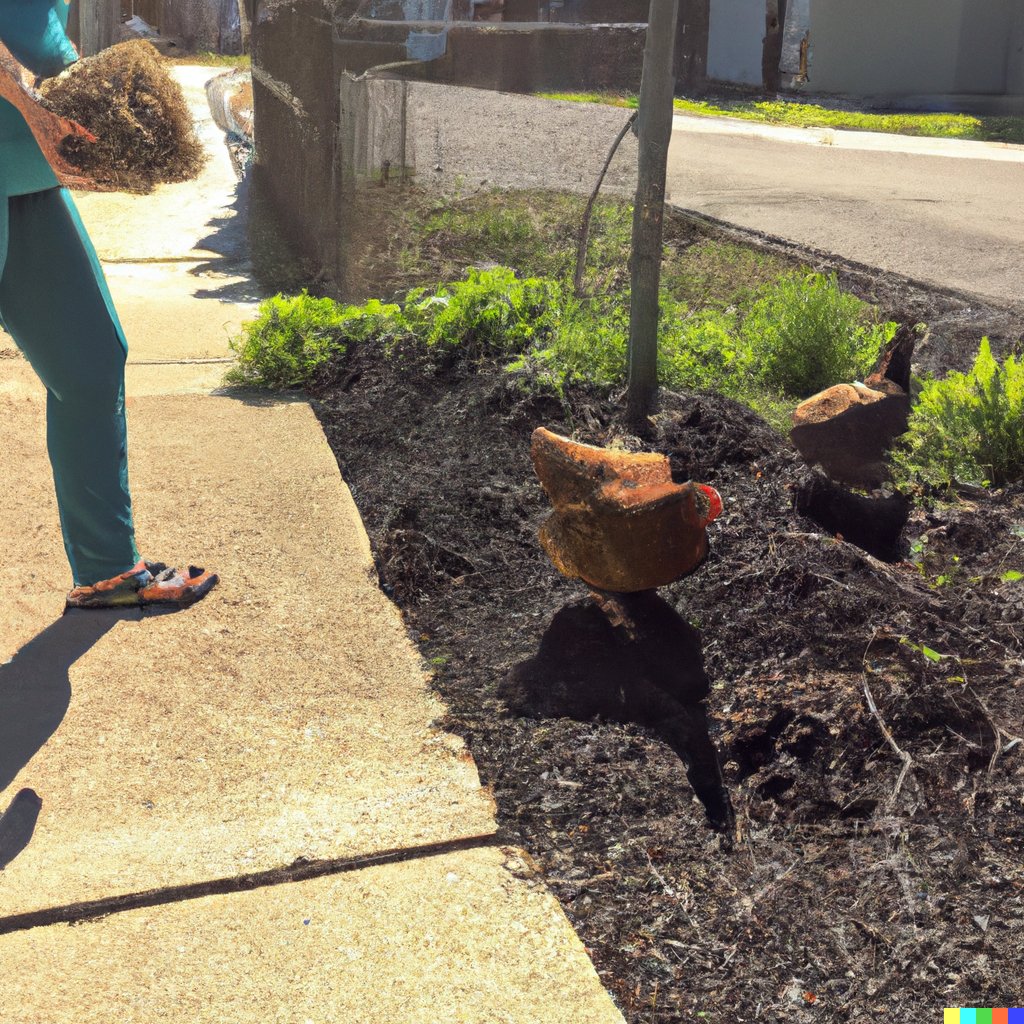
Do you want to feel happier and more content in your daily life? Look no further than your own backyard. Plants have been scientifically proven to improve mental and emotional well-being, and in this article, we will explore the powerful connection between plants and happiness. Say goodbye to stress and hello to a greener, brighter life.
Stress Reduction Through Greenery
Greenery: A Stress Reliever!
Studies show that being around plants can help lower anxiety and stress levels. It offers an immediate calming effect and can be used as a natural remedy to reduce cortisol levels. Plus, it's great for mindfulness and connecting with nature!
Take Sarah for example. She was feeling anxious due to work pressure. She introduced some potted plants to her office and noticed a huge improvement in her mood. The sight of greenery gave her a sense of calmness and helped her stay focused and productive throughout the day.
So, don't forget to bring nature in! Greenery is not only refreshing, but also helps you stay hidden from your enemies...just saying.
Improving Air Quality with Plants
Plants are key in improving the air quality indoors and creating a healthier environment. Here's how they help:
- Air Purification: Plants absorb carbon dioxide and release oxygen via photosynthesis, giving us fresh air!
- Pollutant Filtration: Specific plants can filter out pollutants like formaldehyde, benzene, and trichloroethylene.
- Mood Enhancement: Nature has a calming effect. Being around plants can boost mental well-being.
But not all plants filter air equally - so choose wisely! During NASA's Clean Air Study in 1989, it was discovered that certain houseplants can remove toxins from the air.
Want to feel better and get more done? Forget energy drinks - just bring in some plants!
Boosting Mood and Productivity with Plants
Greenery in the workplace has a positive effect on one's mood and productivity. It is known as biophilic design; a connection with nature which enhances well-being and job satisfaction.
Plants can reduce stress levels and improve mental well-being. They also increase air quality, making the workspace healthier.
Moreover, plants offer tangible benefits to those working indoors. They can enhance concentration and focus, leading to increased productivity. Plus, they have a calming effect, reducing anxiety and promoting a sense of relaxation. Research even shows that employees who work in spaces with plants report higher job satisfaction.
Workspace greenery is crucial for creating an environment that positively impacts emotions and boosts productivity. With increased job satisfaction, individuals are more motivated and perform their tasks efficiently. This leads to higher levels of output and organizational success.
True History: Studies have been done for years on how plants can enhance mood and productivity. The results have been positive, resulting in many organizations incorporating greenery into office spaces.
Connecting with Nature in Urban Spaces: Plants bring a little happiness to city dwellers, helping to create a balance between the concrete jungle and the actual jungle.
Connecting with Nature in Urban Spaces
Experience harmony and contentment by connecting with nature in the city. Urban greenery can bring joy and tranquility, improving mental well-being and quality of life. Studies show that nature in urban spaces can reduce stress and improve cognitive function. Being surrounded by plants can evoke positive emotions, alleviating anxiety and boosting mood.
Urban green spaces also contribute to social cohesion and community engagement. Parks, gardens, and other natural areas can bring people together, fostering a sense of belonging and unity.
The idea of having nature in cities dates back centuries. Ancient civilizations created gardens, and now cities are implementing strategies to increase access to green spaces. Connecting with nature in urban spaces has undeniable benefits. It can cultivate happiness, foster a sense of tranquility, and create healthier and more vibrant communities.
Therapeutic Effects of Horticulture
Gardening therapy is well-known for its therapeutic effects. It can reduce stress, improve mood, and increase feelings of connection with nature. It also offers physical benefits such as better motor skills, coordination, and flexibility. Ancient civilizations recognized the healing power of gardening, utilizing gardens for meditation, relaxation, and spiritual healing.
Plant care is a relationship that thrives on neglect and occasional overwatering!
Mindfulness and Care in Plant Tending
Mindful gardening promotes a sense of responsibility and helps us to find solace in the chaos of daily life. It can reduce stress levels and promote relaxation, while developing an appreciation for nature and establishing a greater connection with it. Ancient civilizations recognized the therapeutic benefits of caring for plants - from Zen gardens in Japan to monastic gardens in Medieval Europe - reminding us of our affinity with nature and its transformative effects on our well-being.
Natural Aesthetics and Visual Pleasure
Studies show that exposure to natural beauty boosts mood, happiness, and mental health. Plants around us can improve brain function and productivity too. Plus, they can ease symptoms of depression and anxiety.
Not only do plants make our homes look great, they also offer several health benefits. They act like air purifiers and keep air clean. They also regulate humidity, reduce noise, and clean the air indoors.
Pro Tip: To get the most out of plants, introduce different types, colors, textures, and sizes in your home. Not only will it look amazing, it'll give you a visual experience that makes you happy.
Social Benefits of Shared Gardening
Gardening is not just green spaces, but also a great way to build social connections. It has a plethora of benefits that make communities better.
- It encourages socializing: People come together and talk when gardening, creating friendships.
- It is a conversation starter: Gardening is a common topic that encourages dialogue between participants.
- It promotes bonding: Through joint work, it forms relationships in the community.
- It creates a sense of community: Being part of gardening brings a feeling of belonging and responsibility.
- It is a place for knowledge sharing: People exchange tips, techniques, and knowledge while gardening.
- It offers collaborative projects: Gardening can lead to larger projects such as urban farming, increasing cohesion.
Shared gardening gives different people from diverse backgrounds an opportunity to cooperate. It provides an inclusive space to connect to nature and promote empathy and understanding among members.
Pro Tip: Organize regular group activities and workshops to maximize the social benefits of shared gardening and share skills and build relationships.
Who needs a therapist when you can chat with plants? They won't charge you any money, but they are great listeners!
Purpose and Fulfillment from Plant Care
Cultivating purpose and fulfillment through tending to plants is a rewarding experience. Nurturing them provides a unique responsibility that brings accomplishment and satisfaction. Humans and plants have a profound connection, bringing joy when we see their growth. Taking care of plants offers purpose and can bring happiness.
Pro Tip: Watering, feeding, and providing sunlight will ensure their health and your own contentment. Why pay for therapy when you can buy houseplants?
Stress Reduction through Plants: How do plants help in reducing stress and anxiety?
Plants: Stress Reducers? How do they work?
Plants give off a calming effect on the mind and lower stress. Their green presence calms our senses and lowers cortisol levels. Plus, plants purify the air by filtering out bad toxins and releasing oxygen. This connection with nature provides a break from city life and a sense of peace. Plant care also encourages mindfulness, as it needs attention and focus on the present. By caring for plants, we become aware of our surroundings and appreciate life's joys. Plants also create visually pleasing environments, reducing stress. Gardening also encourages social interaction and builds a sense of belonging. Lastly, caring for plants brings responsibility and purpose.
Incorporating Plants & Stress Reduction:
Try creating an indoor garden, adding potted plants to your workspace or home, or doing horticultural therapy. Spend time caring for plants and channel your focus away from stressors. Select plants that are beautiful and uplift your mood. Join community gardens or gardening events. Nurture plants and find purpose through caring for another living organism. By bringing plants into our lives, we can reduce stress and reap mental, emotional, and physical benefits.
1. How do plants make you happy?
Plants have the ability to positively impact our mental and emotional well-being. They can improve our mood, reduce stress and anxiety, and bring a sense of calm and peace. The presence of plants in our environment can also increase productivity, creativity, and overall happiness.
2. What is the science behind how plants make you happy?
Plants release chemicals called phytoncides, which have been shown to decrease stress levels and improve mood. In addition, the act of caring for and nurturing plants can release dopamine and serotonin, the "feel-good" hormones in our brains. The color green, commonly associated with plants, is also known to have a calming effect on the mind and body.
3. Can plants help with anxiety and depression?
Yes, plants can be a useful tool in managing anxiety and depression. Studies have shown that indoor plants can reduce the symptoms of anxiety and depression and improve overall emotional well-being. The act of caring for plants and watching them grow can also provide a sense of purpose and accomplishment, which can be beneficial for those struggling with mental health issues.
4. Do certain types of plants have a greater impact on happiness?
While all plants have the ability to improve our mood and well-being, there are some that are known to have a greater impact. Plants with bright and vibrant colors, such as sunflowers and orchids, are especially beneficial for boosting happiness. Additionally, plants with a pleasing scent, like lavender or jasmine, can also have a calming and uplifting effect on our mood.
5. Can plants make you feel less lonely?
Yes, plants can help reduce feelings of loneliness and isolation. Studies have shown that having plants in our living spaces can create a sense of companionship and connection to nature. They also provide a sense of responsibility and routine, which can be beneficial for those feeling lonely.
6. How can I incorporate more plants into my life for happiness?
There are many ways to bring more plants into your life for increased happiness. You can start by adding a few plants to your home or office space, creating a small indoor garden, or spending time in nature. You can also try incorporating more natural elements, such as flowers or herbs, into your daily routines, such as adding them to your meals or using them in aromatherapy. Find what works best for you and enjoy the positive effects that plants can have on your happiness.
Conclusion:
Plants have a profound ability to enhance our well-being, offering stress reduction, improved air quality, and a mood boost. Incorporating plants into our living and working spaces connects us with nature, enhances our environment's aesthetics, and fosters mindfulness and social interactions. The care and nurturing of plants bring a sense of accomplishment and fulfillment, contributing to our overall happiness and mental health. By embracing the presence of plants in our lives, we tap into the natural benefits they offer, creating a more harmonious and joyful living space.







.jpeg)






